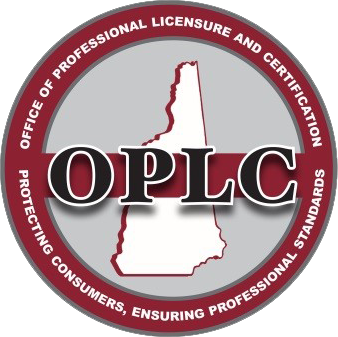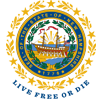Board of Medicine Patient FAQs
Frequently asked questions from patients and families.
- Who is on the Board of Medicine?
- Who can make a complaint?
- Will I get in trouble if I make a complaint?
- What happens after I make a complaint?
- What happens once the Board has the complaint and response?
- How often does the Medical Review Subcommittee meet?
- What actions might the Board take after reviewing Reports of Investigation?
- How will I find out what happens after I make a complaint?
- Why does it take so long to get an answer?
- I made a complaint four months ago. I got a letter thanking me for this, but nothing ever happened. What's my next step?
- Who is on the Board of Medicine?
-
The Board of Medicine is composed of 11 volunteer members: six physicians, one physician assistant (PA), three non-physician public members, and the Commissioner of Health and Human Services or the commissioner's designee. Board members are appointed by the Governor with the advice and consent of the Executive Council and serve up to two five-year terms.
- Who can make a complaint?
-
Anyone, including a patient, family member or concerned friend, may file a complaint with the Board of Medicine. A complaint may involve substandard care, practicing medicine while impaired by alcohol or drugs, engaging in dishonest or unprofessional conduct, and other issues. For instructions on how to file a complaint, see next faq.
- Will I get in trouble if I make a complaint?
-
New Hampshire law states that "No civil action shall be maintained against…any…person for or by reason of any good faith statement, report, communication or testimony to the board." (New Hampshire Revised Statutes Annotated 329:17,IX). In other words, you are protected if you make a complaint honestly and in good faith.
- What happens after I make a complaint?
-
A copy of your complaint will be sent to the physician or physician assistant for his or her response. The physician/physician assistant has 30 days to respond to the complaint. If necessary, the Board's investigator will obtain the relevant medical records.
- What happens once the Board has the complaint and response?
-
Your complaint is sent to a subcommittee, called the Medical Review Subcommittee, or MRSC. The MRSC is comprised of different members than the Board, and is composed of 11 volunteer members: six physicians, one physician assistant (PA), three non-physician public members and the vice-president of the Board. MRSC members are appointed by the Governor with the advice and consent of the Executive Council and serve up to two three-year terms. Your complaint is assigned to one member of the MRSC for investigation. In conjunction with the Board's investigatory staff, that member will obtain any further necessary medical records and/or responses from other physicians. This member will draft a Report of Investigation and discuss it with the other MRSC members. If necessary, the MRSC may send the information gathered to a physician, who is an expert in the relevant medical field, to review all the documentation. The expert physician will draft the Report of Investigation and return it to the MRSC for review. The MRSC forwards all Reports of Investigations to the Board with a recommendation.
- How often does the Medical Review Subcommittee meet?
-
The volunteer members of the MRSC have regularly scheduled monthly meetings. These meetings are closed to the public because of the sensitive nature of individuals' medical records.
- What actions might the Board take after reviewing Reports of Investigation?
-
The Board might vote:
- To take no further action. If, in reviewing the complaint, response, and necessary medical records, the allegations do not rise to a violation of the Board's statutes, the Board's rules, or the AMA code of Ethics, the Board must dismiss the complaint.
- To issue a Letter of Concern. The law states: "The Board may issue a non-disciplinary confidential letter of concern to a licensee advising that while there is insufficient evidence to support a disciplinary action, the Board believes the physician should modify or eliminate certain practices, and that continuation of the activities which led to the information being submitted to the Board may result in action against the licensee's license. This letter shall not be released to the public or any other licensing authority, except that the letter may be used as evidence in subsequent disciplinary proceedings by the Board." (New Hampshire Revised Statutes Annotated 329:17,VII-a). In plain terms, this letter is not an actual disciplinary action, not public, not a fine, not a reprimand, but is a letter warning that a doctor's practice is possibly a problem, and that he or she should modify those practices. No one (including you) except the doctor and the Board knows of this letter, and it is not posted on the Board's website, nor made public to anyone who asks. It is not sent to the National Practitioners Data Bank. However, this warning is taken very seriously by doctors, and all letters of concern remain in the doctor's file at the Board of Medicine.
- To take public disciplinary action. The Board then directs its lawyers (Hearing Counsel) to draft a Notice of Hearing which the Board then publicly issues. After holding a hearing, the Board makes a finding of whether the licensee violated a statute or rule. If so, the Board may impose disciplinary action. Disciplinary action may consist of a reprimand, suspension or revocation of license, fine, remedial education, or any one or more of the other actions available to it by law. At any time during this process, the doctor may negotiate a public settlement agreement with the Board's Hearing Counsel, but all settlement agreements must be brought before the Board for approval before they become final.
- How will I find out what happens after I make a complaint?
-
The Board will mail you an acknowledgement that your complaint has been received, and you may call any time to check on the progress. If the Board votes to issue a Notice of Hearing, you will receive a copy of the Notice. If no action is taken, or if a Letter of Concern is sent to the physician/physician assistant, you will be informed only that the Board has investigated the complaint and this investigation did not result in a formal disciplinary action against the licensee. Unless the Board makes an affirmative finding that the complaint is unfounded in accordance with Revised Statute Annotated 329:17,XIII, the complaint will remain in the licensee's file and may be re-examined in the future for a pattern of conduct.
- Why does it take so long to get an answer?
-
Once a complaint is made, the Medical Review Subcommittee (MRSC) is required to obtain a response from the doctor, the medical records and other relevant information. An MRSC member must draft a Report of Investigation and present it at a monthly MRSC meeting for a recommendation. The Report of Investigation is then sent to the Board, placed on the agenda for its next regularly scheduled monthly meeting, for a vote as described above. This may take three to four months. If an expert review is required, or if the Board requires additional information to make an informed decision, the process is prolonged. Three to six months or more for a final decision is not uncommon.
- I made a complaint four months ago. I got a letter thanking me for this, but nothing ever happened. What's my next step?
-
You may call or email us to inquire. The Board's vote to take no further action or to issue a Letter of Concern, is not made public. However, you will be informed in writing that the Board has investigated the complaint and this investigation did not result in a formal disciplinary action against the doctor. The Board's vote to take disciplinary action becomes public after either a Notice of Hearing is issued or a Settlement Agreement is approved by the Board. Before a Settlement Agreement is presented to the Board, Hearing Counsel will contact the complainant for input. Please note that only the complainant will be contacted for input before a settlement agreement is presented to the Board. This means that if the Board has commenced an investigation against a licensee due to the superior court notifying the Board of a court action, there would be no complainant on file with the Board and thus input will not be sought prior to settlement agreement presentation.




